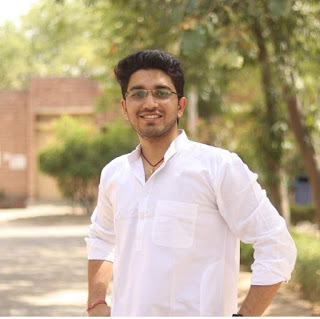India- A Democratic Country.
India is the 5th largest economy of the world, the second-most populous country of the world, and the biggest democracy of the world. According to Abraham Lincoln democracy is a government of the people by the people and for the people. So basically democracy is a form of government in which rulers are elected by people. 123 of the 192 countries on the earth are democracies. And the 15th of September is celebrated as an international democracy day around the world.
Need For Democracy
Consider a class of 29 students of different ages, behavior, and mindsets, and these students need a class teacher for the proper functioning of their class who can serve the interest of each student, in case of conflicts between students can resolve the issues unbiasedly and the one who is accountable to all her/his decisions then this teacher should be chosen by all the children of the class. Here a class represents our country India, 29 different students represent the 29 Indian states with different cultures and a class teacher represents the government of the nation. So simply, in order to serve and save the interests and rights of a diverse population of any country we need a government chosen by the people of that nation. And democracy promotes the same idea of enhances
the dignity of citizens and provides a
method to deal with differences and conflicts within the country.
Democracy And Diversity Of Indian Population
With 29 states, 114 different major languages, 6 majors religions, and several different castes, India is one of the highly diverse countries in the world. And when this diverse population lives together in the country it's become very challenging for the government to protect the rights and serve the interests of all people of the country.
The Ayodhya dispute is a perfect example of the challenge the democratic country faces. It took 169 years to solve the Ayodhya land dispute. India took so long to solve this case because any wrong decision can lead to the great conflict between two major religions of India. Finally, on 9 November 2019, the Supreme Court announced their verdict and handed over disputed land to build a Hindu temple and also ordered the government to give an alternate five-acre land in Ayodhya to construct a mosque. And in this way, the religious sentiments of both religions preserved thus the idea of democracy wins.
Challenges Of Indian Democracy
48% of the Indian population is women but their political representation is very low. The 17th Lok Sabha has 14% elected women, which is highest since after independence. The share of women in state assemblies is also low. Even India ranks 20th from the bottom in terms of representation of women in Parliament.
It's difficult for poor people to fight elections
On average, every candidate who contests the last Lok Sabha elections owned property of more than Rs one crore. In the 2019 Lok Sabha election, a candidate can spend between Rs 50 lakh and Rs 70 lakh, and For the assembly elections, between Rs 20 lakh and Rs 28 lakh. And in the year 2018 - 19, 88 million Indian people lived below the poverty line in the year. So it's very clear that a lot of people cannot even afford to fight elections which is a great challenge to democracy.




Comments
Post a Comment